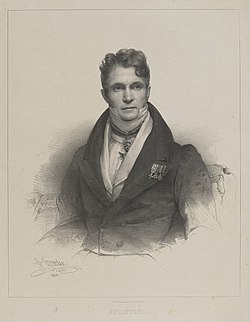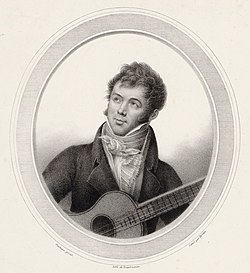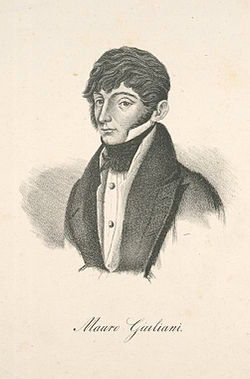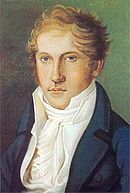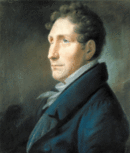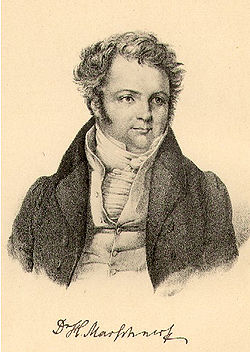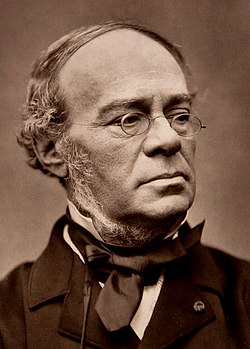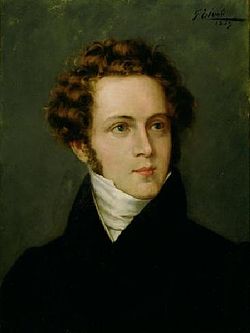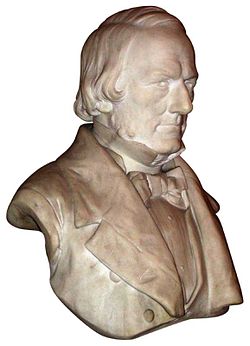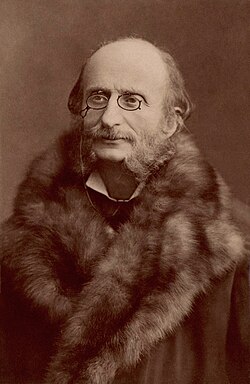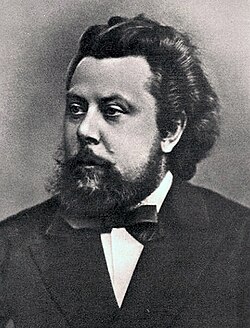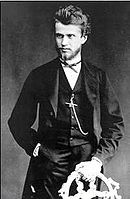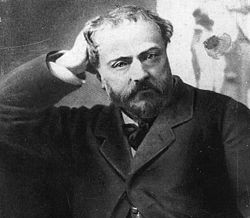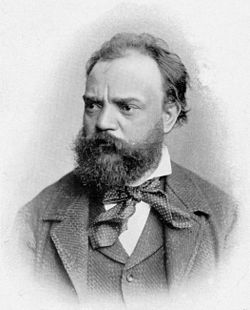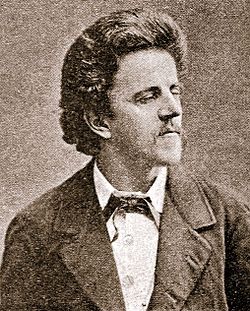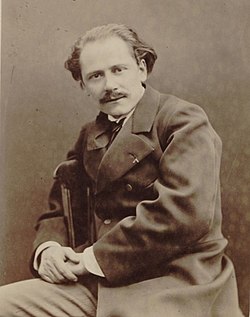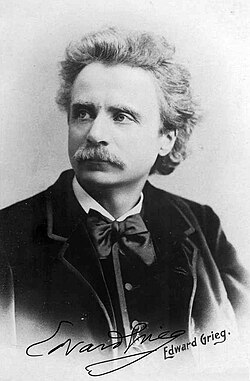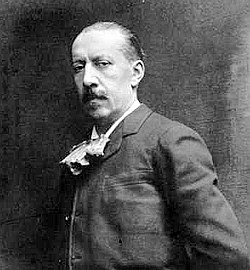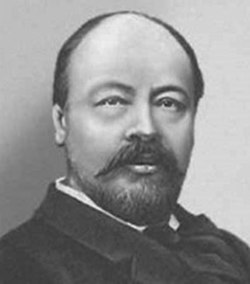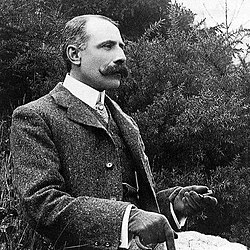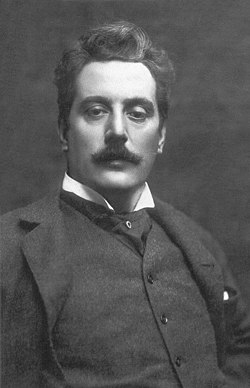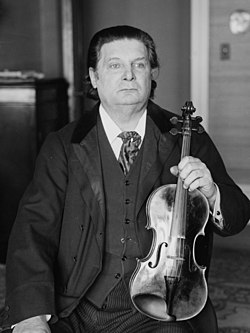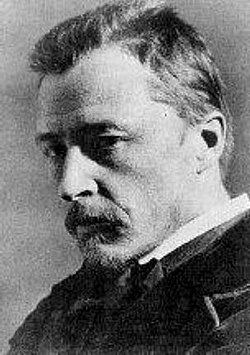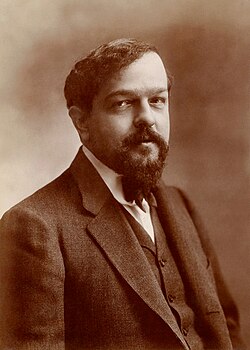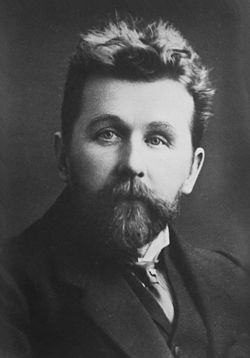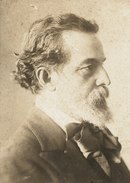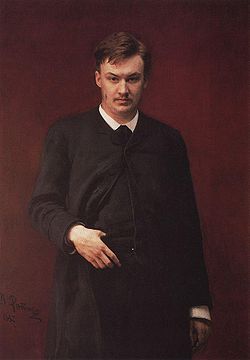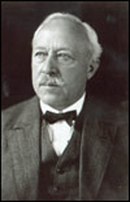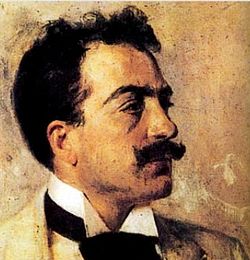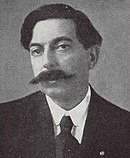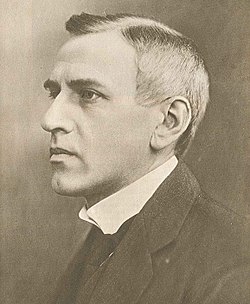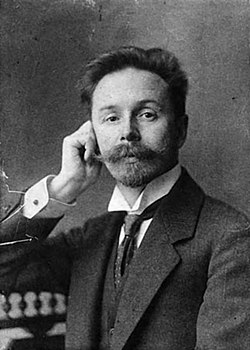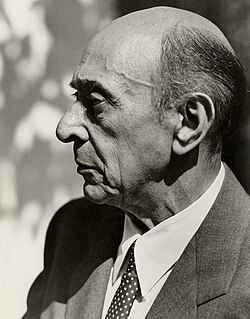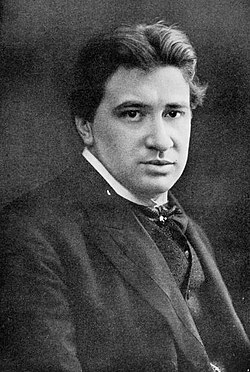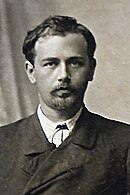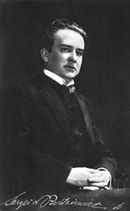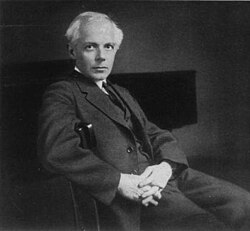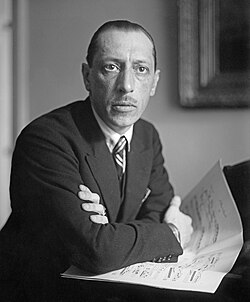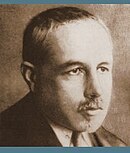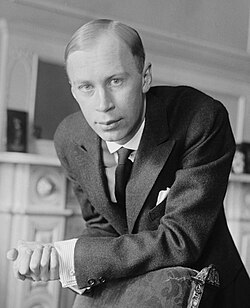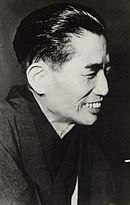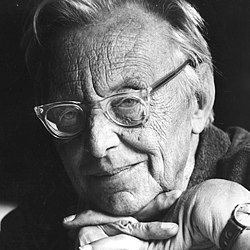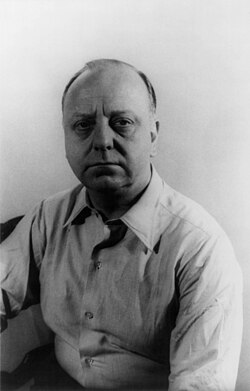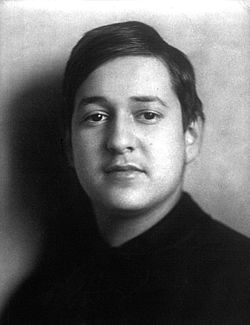Name Date born Date died Nationality Comments Isaac Albéniz 1860 1909 Spanish Isaac Albéniz composer and virtuoso pianist, known for nationalist piano works such as Iberia and a 'set of 12 piano pieces' Valborg Aulin 1860 1928 Swedish Valborg Aulin female pianist and composer Gustave Charpentier 1860 1956 French Gustave Charpentier composer, best known for his opera, Louise Gisela Frankl 1860 1935 Austrian Gisela Frankl pianist and composer Gustav Mahler 1860 1911 Austrian Gustav Mahler composer, one of the most important late-Romantic/early-Modernist composers, his works include ten innovative large-scale and sometimes programmatic symphonies and many lieder Edward MacDowell 1860 1908 American Edward MacDowell composer, best known for his piano concertos and piano suites, his works include his most popular short piece, "To a Wild Rose" Hugo Wolf 1860 1903 Austrian Hugo Wolf composer of lieder , influenced by Richard Wagner Ignacy Jan Paderewski 1860 1941 Polish Ignacy Paderewski pianist and composer Anton Arensky 1861 1906 Russian Anton Arensky composer, pianist and music teacher Spyridon Samaras 1861 1917 Greek Spyridon Samaras opera composer, widely known for his composition of the "Olympic Hymn " Wilhelm Berger 1861 1911 German Wilhelm Berger composer, pianist and conductor Georgy Catoire 1861 1926 Russian composer Václav Suk 1861 1933 Czech-born Russian Václav Suk composer, violinist and conductor Stéphan Elmas 1862 1937 Armenian Stéphan Elmas composer, pianist and teacher Claude Debussy 1862 1918 French Claude Debussy composer, one of the most prominent figures working within the field of Impressionist music , best known for Clair de Lune from Suite bergamasque Frederick Delius 1862 1934 English Frederick Delius composer, used chromaticism in many of his compositions Edward German 1862 1936 English Edward German composer of Welsh descent, known for his three comic operas, Merrie England , A Princess of Kensington and Tom Jones Alberto Williams 1862 1952 Argentine Alberto Williams composer and conductor Emil von Sauer 1862 1942 German Emil von Sauer composer, pianist, editor and teacher Hugo Becker 1863 1941 German Hugo Becker composer and cellist Pietro Mascagni 1863 1945 Italian Pietro Mascagni opera composer, known for Cavalleria Rusticana Horatio Parker 1863 1919 American Horatio Parker composer, organist and teacher Gabriel Pierné 1863 1937 French Gabriel Pierné composer, conductor and organist Ricardo Castro 1864 1907 Mexican Ricardo Castro composer, works include piano music Alexander Gretchaninov 1864 1956 Russian Alexander Gretchaninov composer Sakunosuke Koyama 1864 1927 Japanese Sakunosuke Koyama composer and music teacher Alberto Nepomuceno 1864 1920 Brazilian Alberto Nepomuceno composer Clarence L. Partee 1864 1915 American Clarence L. Partee composer for banjo, mandolin and guitar Guy Ropartz 1864 1955 French Guy Ropartz composer and conductor Richard Strauss 1864 1949 German Richard Strauss composer, known for Also Sprach Zarathustra (based on the book, Thus Spoke Zarathustra by Friedrich Nietzsche ), wrote many symphonic poems , operas and lieder Paul Dukas 1865 1935 French Paul Dukas composer, known for his piece of program music , The Sorcerer's Apprentice Eduardo di Capua 1865 1917 Italian Eduardo di Capua composer, known for his song, "'O sole mio " Herbert J. Ellis 1865 1903 English Herbert Ellis musician (banjo, mandolin and guitar), wrote method books, more than 1000 compositions Paul Gilson 1865 1942 Belgian Paul Gilson musician and composer Alexander Glazunov 1865 1936 Russian Alexander Glazunov composer, influenced by Richard Wagner and Franz Liszt Albéric Magnard 1865 1914 French Albéric Magnard composer Carl Nielsen 1865 1931 Danish Carl Nielsen composer, renowned for his six symphonies and concerti Jean Sibelius 1865 1957 Finnish Jean Sibelius composer of seven symphonies and the Violin Concerto in D minor , known also for the symphonic poems include Finlandia , En saga , Lemminkäinen (which includes the Swan of Tuonela ), The Oceanides , and Tapiola Vasily Kalinnikov 1866 1901 Russian Vasily Kalinnikov composer of two symphonies Tor Aulin 1866 1914 Swedish Tor Aulin violinist, conductor and composer Ferruccio Busoni 1866 1924 Italian Ferruccio Busoni composer and pianist, known for his opera, Turandot and his many transcriptions and arrangements of Johann Sebastian Bach Francesco Cilea 1866 1950 Italian Francesco Cilea composer, particularly known for his two operas, L'arlesiana and Adriana Lecouvreur Amanda Aldridge 1866 1956 British Amanda Aldridge composer, opera singer and teacher Vladimir Rebikov 1866 1920 Russian Vladimir Rebikov composer and pianist Erik Satie 1866 1925 French Erik Satie composer and pianist, best known for Les Trois Gymnopédies Georg Schumann 1866 1952 German Georg Schumann composer, older brother of Camillo Schumann ; no relation to Robert Schumann Johann Strauss III 1866 1939 Austrian Johann Strauss III composer, son of Eduard Strauss Learmont Drysdale 1866 1909 Scottish composer Samuel Maykapar 1867 1938 Russian Samuel Maykapar composer Amy Beach 1867 1944 American Amy Beach composer and pianist Umberto Giordano 1867 1948 Italian Umberto Giordano opera composer Enrique Granados 1867 1916 Spanish Enrique Granados composer and pianist, known for his piano works and chamber music Wilhelm Peterson-Berger 1867 1942 Swedish Wilhelm Peterson-Berger composer, wrote symphonies , operas , vocal and piano music Charles Koechlin 1867 1950 French Charles Koechlin composer, teacher and writer on music Scott Joplin c. 1867/1868 1917 American Scott Joplin composer and pianist known as "The Ragtime King", best known for Maple Leaf Rag and The Entertainer among other ragtime compositions Oskar Merikanto 1868 1924 Finnish Oskar Merikanto musician and composer Granville Bantock 1868 1946 British composer Hermann Bischoff 1868 1936 German composer Hamish MacCunn 1868 1916 Scottish composer, conductor and teacher, most famous for The Land of the Mountain and the Flood Vittorio Monti 1868 1922 Italian composer, violinist and conductor, most famous for Csárdás José Vianna da Motta 1868 1948 Portuguese pianist , teacher and composer, most famous for Symphony 'À Pátria', Op. 13 Juventino Rosas 1868 1894 Mexican Juventino Rosas composer, known for his song, "Sobre las Olas " Jan Brandts Buys 1868 1933 Dutch-Austrian composer Tokichi Setoguchi 1868 1941 Japanese Tokichi Setoguchi composer, music educator, conductor and clarinetist, famous for Warship March Seth Weeks 1868 1953 American Seth Weeks composer, music educator, jazz bandleader and mandolinist Siegfried Wagner 1869 1930 German opera composer, conductor and the son of Richard Wagner Demetrios Lialios 1869 1940 Greek composer of chamber music Julius Conus 1869 1942 Russian composer and violinist Albert Roussel 1869 1937 French Albert Roussel composer Armas Järnefelt 1869 1958 Finnish composer and conductor Harry Lawrence Freeman 1869 1954 American opera composer, conductor, impresario and teacher, best known for his African-American opera, Voodoo Alfred Hill 1869 1960 Australian-New Zealand composer, conductor and teacher John Nicholas Klohr 1869 1956 American composer of band music, most famous for The Billboard March Leopold Godowsky 1870 1938 Polish composer, pianist and teacher Zygmunt Stojowski 1870 1946 Polish composer and pianist Oscar Straus 1870 1954 Austrian Oscar Straus composer, no relation to the musical Strauss family of Vienna (Johann Strauss I , Johann Strauss II , Josef Strauss , Eduard Strauss and Johann Strauss III ) Franz Lehár 1870 1948 Hungarian composer, mainly known for his operettas Florent Schmitt 1870 1958 French composer Luigi von Kunits 1870 1931 Serbian-born Austrian composer and conductor, founder of the Pittsburg and Toronto symphony orchestras Guillaume Lekeu 1870 1894 Belgian composer, known for his violin sonata Louis Vierne 1870 1937 French Louis Vierne composer and organist, titular organist of Notre-Dame de Paris Nobu Kōda 1870 1946 Japanese Nobu Kōda composer, violinist and music teacher Frederick Converse 1871 1940 American composer Alfredo D'Ambrosio 1871 1914 Italian violinist and composer Giacomo Balla 1871 1958 Italian futurist composer and artist Zacharia Paliashvili 1871 1933 Georgian Zacharia Paliashvili composer, known for the eclectic fusion of Georgian folk songs and stories with 19th century Romantic classical themes. He was the founder of the Georgian Philharmonic Society and later, the head of the Tbilisi State Conservatoire Henry Kimball Hadley 1871 1937 American composer and conductor, known for the opera, Cleopatra's Night Oreste Ravanello 1871 1938 Italian composer, known for works for choir and for organ Wilhelm Stenhammar 1871 1927 Swedish Wilhelm Stenhammar composer, conductor and pianist Alexander von Zemlinsky 1871 1942 Austrian Alexander von Zemlinsky composer and music teacher, his students include Arnold Schoenberg and Erich Wolfgang Korngold Stanislav Binički 1872 1942 Serbian composer Hugo Alfvén 1872 1960 Swedish Hugo Alfvén composer, known for Swedish Rhapsody , works include choral music and five symphonies Julius Fučík 1872 1916 Czech Julius Fučík composer and conductor of military bands, known for Entrance of the Gladiators Rubin Goldmark 1872 1936 American composer, pianist, educator and nephew of Karl Goldmark Alexander Scriabin 1872 1915 Russian Alexander Scriabin composer and pianist, known for his harmonically adventurous piano sonatas and theatrically orchestral works, characteristic period compositions include his Op. 1 to Op. 30 works Ralph Vaughan Williams 1872 1958 English Ralph Vaughan Williams composer, his works include nine symphonies , Fantasia on a Theme by Thomas Tallis and other orchestral poems Salvator Léonardi 1872 1938 Italian composer, performer and teacher, known for Souvenir de Catania , Souvenir de Napoli , Souvenir de Sicile and Angeli e Demoni Camillo Schumann 1872 1946 German composer, younger brother of Georg Schumann ; no relation to Robert Schumann William Henry Bell 1873 1946 English composer, conductor and lecturer Leo Fall 1873 1925 Austrian composer of operettas Pascual Marquina Narro 1873 1948 Spanish prolific orchestral and operatic composer Sergei Rachmaninoff 1873 1943 Russian Sergei Rachmaninoff composer, conductor and virtuoso pianist, wrote three symphonies , four piano concertos , Rhapsody on a Theme of Paganini and solo piano music Max Reger 1873 1916 German prolific composer, known for his Variations and Fugue on a Theme by Mozart Reynaldo Hahn 1874 1947 Venezuelan composer, known for his strikingly beautiful and unabashedly tonal melodies Gustav Holst 1874 1934 English Gustav Holst composer, best known for his orchestral suite, The Planets Charles Ives 1874 1954 American composer, member of the American Five , best known for The Unanswered Question and his Concord Sonata Arnold Schoenberg 1874 1951 Austrian-American Arnold Schoenberg composer, whose early works (e.g. Verklärte Nacht ) are influenced by Richard Wagner , but subsequently developed atonalism and serialism with such watershed works as Moses und Aron Josef Suk 1874 1935 Czech Josef Suk composer and violinist Franz Schmidt 1874 1939 Austrian composer, influenced by Anton Bruckner and Johannes Brahms Eugénie-Victorine-Jeanne Alombert 1874 1964 French composer and pianist Reinhold Glière 1875 1956 Russian Reinhold Glière composer Julián Carrillo 1875 1965 Mexican composer, conductor, violinist and music theorist Fritz Kreisler 1875 1962 Austrian composer and virtuoso violinist, known for his sweet sound, composed short showpieces for the violin Richard Wetz 1875 1935 German composer, influenced by Anton Bruckner Maurice Ravel 1875 1937 French Maurice Ravel composer, best known for Boléro Franco Alfano 1875 1954 Italian composer and pianist Albert Ketèlbey 1875 1959 English composer, conductor and pianist Samuel Coleridge-Taylor 1875 1912 English composer, known for his trilogy of cantatas , The Song of Hiawatha Alexander Koshetz 1875 1944 Ukrainian Alexander Koshetz choral conductor, arranger, composer, ethnographer , writer, musicologist and lecturer Mikalojus Konstantinas Čiurlionis 1875 1911 Lithuanian painter and composer Henriette Renié 1875 1956 French harpist and composer Josef Hofmann 1876 1957 Polish-American Josef Hofmann composer and pianist Edgar Bara 1876 1962 French mandolinist and composer, conducted mandolin orchestra John Alden Carpenter 1876 1951 American composer Manuel de Falla 1876 1946 Spanish Manuel de Falla composer, best known for The Three-Cornered Hat Flor Alpaerts 1876 1954 Belgian composer, notable students include the two composers, Denise Tolkowsky and Ernest Schuyten Mieczysław Karłowicz 1876 1909 Polish Mieczysław Karłowicz composer, his style is of late-Romantic and nationalist character Filippo Tommaso Marinetti 1876 1944 Italian Filippo Marinetti futurist composer, poet, and editor Fermo Dante Marchetti 1876 1940 Italian Fermo Marchetti composer, best known for the song, "Fascination " Ludolf Nielsen 1876 1939 Danish Ludolf Nielsen composer, violinist, conductor and pianist Carl Ruggles 1876 1971 American composer, painter and the member of the American Five , whose representative Romantic-period work is the lieder Ich fühle deinen Odem Ermanno Wolf-Ferrari 1876 1948 Italian Ermanno Wolf-Ferrari composer and music teacher, known for his comic operas Nakao Tozan 1876 1956 Japanese Nakao Tozan performer and prolific composer, known for his works of the Tozan school Petar Krstić 1877 1957 Serbian composer and conductor Antonio Russolo 1877 1942 Italian futurist composer and brother of Luigi Russolo Ernst von Dohnányi 1877 1960 Hungarian Ernst von Dohnányi conductor, composer and pianist Elisabeth Kuyper 1877 1953 Dutch Elisabeth Kuyper composer and conductor Paul Ladmirault 1877 1944 French Paul Ladmirault composer Mykola Leontovych 1877 1921 Ukrainian Mykola Leontovych composer, choral conductor and teacher, known for his arrangement of the carol "Shchedryk ", known in English as "Carol of the Bells " or as "Ring Christmas Bells" Sergei Bortkiewicz 1877 1952 Russian Sergei Bortkiewicz composer and pianist Isidor Bajić 1878 1915 Serbian Isidor Bajić composer, conductor, teacher and publisher Gabriel Dupont 1878 1914 French Gabriel Dupont composer, known for his operas and chamber music Joseph Holbrooke 1878 1958 English Joseph Holbrooke composer, conductor and pianist Franz Schreker 1878 1934 Austrian Franz Schreker conductor, composer and music teacher, primarily a composer of operas Teiichi Okano 1878 1941 Japanese Teiichi Okano composer Conrado del Campo 1878 1953 Spanish Conrado del Campo composer, violinist and pedagogue Frank Bridge 1879 1941 English Frank Bridge composer, best known as the teacher of Benjamin Britten , characteristic period compositions include Suite for String Orchestra and his Capriccio Nos. 1 and 2 Viggo Brodersen 1879 1965 Danish Viggo Brodersen composer and pianist Adolf Wiklund 1879 1950 Swedish Adolf Wiklund composer, conductor and pianist Joseph Canteloube 1879 1957 French Joseph Canteloube composer, primarily known for Chants d'Auvergne Hamilton Harty 1879 1941 Irish Hamilton Harty composer and conductor, best known for An Irish Symphony John Ireland 1879 1962 English composer, whose Piano Concerto is representative Carmela Mackenna 1879 1962 Chilean Carmela Mackenna composer and pianist Alma Mahler 1879 1964 Austrian Alma Mahler composer and wife of Gustav Mahler Otto Olsson 1879 1964 Swedish composer Ottorino Respighi 1879 1936 Italian composer, known for his three symphonic poems , Fountains of Rome , Pines of Rome , and Roman Festivals Rudolf Sieczyński 1879 1952 Austrian Rudolf Sieczyński composer Cyril Scott 1879 1970 English composer, writer and poet Rentarō Taki 1879 1903 Japanese Rentarō Taki composer and pianist Nikolai Medtner 1880 1951 Russian Nikolai Medtner composer and pianist Clarence Cameron White 1880 1960 American neoromantic composer and concert violinist Emilios Riadis 1880 1935 Greek composer, famous for his song cycles Béla Bartók 1881 1945 Hungarian Béla Bartók composer, pianist and ethnomusicologist Kenneth J. Alford 1881 1945 English composer of marches for band, most famous for Colonel Bogey March Igor Stravinsky 1882 1971 Russian Igor Stravinsky composer, pianist and conductor, best known for his three ballets, The Firebird , Petrushka and The Rite of Spring and his characteristic Romantic-style compositions include Symphony in E-flat , Scherzo fantastique and Fireworks Maximilian Steinberg 1883 1946 Russian Maximilian Steinberg composer, whose musical language was influenced by Glazunov and Rimsky-Korsakov's late Romanticism before developing into socialist realism by the late 1920s, characteristic period compositions include his Symphonies Nos. 1 and 2 and his Fantaisie dramatique Arnold Bax 1883 1953 English Arnold Bax composer, poet and author, best known for his orchestral music Manolis Kalomiris 1883 1962 Greek Manolis Kalomiris composer and founder of the Greek National School of Music Klaus Pringsheim Sr. 1883 1972 German-born Japanese composer, conductor and music educator Enrique Soro Barriga 1884 1954 Chilean Enrique Soro Barriga composer and pianist Edwin York Bowen 1884 1961 English York Bowen composer and pianist Charles Tomlinson Griffes 1884 1920 American Charles Tomlinson composer, known for his musical impressionism Alfonso Leng 1884 1974 Chilean Alfonso Leng composer and dentist Marios Varvoglis 1885 1967 Greek Marios Varvoglis composer Dimitrios Levidis 1885 1951 Greek Dimitrios Levidis composer Nagayo Motoori 1885 1945 Japanese Nagayo Motoori composer Pedro Humberto Allende 1885 1957 Chilean Pedro Humberto composer and pianist who serves as the first Chilean impressionist composer Kōsaku Yamada 1886 1965 Japanese Kōsaku Yamada composer and conductor Kurt Atterberg 1887 1974 Swedish Kurt Atterberg composer and conductor Carlos Isamitt 1887 1974 Chilean Carlos Isamitt composer, painter and musicologist Nadia Boulanger 1887 1979 French Nadia Boulanger composer, pianist and organist Max Steiner 1888 1971 Austrian-born American composer and conductor who emigrated to America and became one of Hollywood 's greatest musical composers Philip Greeley Clapp 1888 1954 American educator, conductor, pianist and composer of classical music María Rodrigo 1888 1967 Spanish María Rodrigo composer and pianist Sverre Jordan 1889 1972 Norwegian Sverre Jordan composer and conductor Morishige Takei 1890 1949 Japanese Morishige Takei composer, guitarist and mandolinist Luís de Freitas Branco 1890 1955 Portuguese Luís de Freitas Branco composer and musicologist Sergei Prokofiev 1891 1953 Russian Sergei Prokofiev composer, pianist and conductor, best known for his ballet, Romeo and Juliet , his characteristic Romantic works include his Piano Sonata No. 1 in F Minor and his 4 Etudes Darius Milhaud 1892 1974 French Darius Milhaud composer, conductor and teacher Ferde Grofé 1892 1972 American Ferde Grofé composer, arranger, pianist and instrumentalist, best known for Grand Canyon Suite Sayed Darwish 1892 1923 Egyptian Sayed Darwish composer, arranger and singer Lili Boulanger 1893 1918 French Lili Boulanger composer and the first female winner of the Prix de Rome prize Rued Langgaard 1893 1952 Danish Rued Langgaard composer and organist Tamezō Narita 1893 1945 Japanese Tamezō Narita composer Michio Miyagi 1894 1956 Japanese Michio Miyagi composer and musician, famous for his koto playing William Grant Still 1895 1978 American William Grant Still composer known as "The Dean of Afro-American Composers" Carl Orff 1895 1982 German Carl Orff composer and music educator, best known for his cantata, Carmina Burana Eva Jessye 1895 1992 American Eva Jessye composer, conductor and singer Leo Ornstein c. 1895 2002 Ukrainian-American Leo Ornstein composer and pianist, though had a reputation as an avant-garde composer during his youth, he has composed characteristic Romantic-period works including Scherzino in B Minor, the piano suite Seeing Russia with Teacher , and 9 Miniatures Virgil Thomson 1896 1989 American Virgil Thomson composer and critic António Fragoso 1897 1918 Portuguese António Fragoso composer and pianist Henry Cowell 1897 1965 American Henry Cowell composer, writer, pianist, publisher, teacher and the husband of Sidney Robertson Cowell Erich Wolfgang Korngold 1897 1957 Moravian-born American Erich Wolfgang Korngold composer and conductor George Gershwin 1898 1937 American George Gershwin composer and pianist known as "The New York Citizen", best known for Rhapsody in Blue and An American in Paris as well as his opera, Porgy and Bess Mischa Levitzki 1898 1941 American Mischa Levitzki composer and pianist of Romantic-style works









